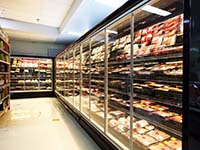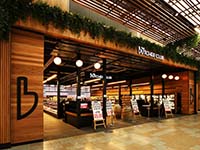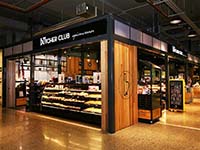Commercial refrigeration units play significant roles in several businesses. They ensure the safety of food products and other items that need to be refrigerated for extended periods. These units also help in keeping the health of their clients or customers unharmed since all food items are maintained without spoilage.
Reach-in refrigerators, prep tables, under-counter refrigerators, glass chillers, and walk-in freezers are only a few examples of commercial refrigeration units. These units mostly vary in size and shape. They are also comprised of different components and elements, which makes them distinct from residential refrigeration units. For this reason alone, some types of commercial refrigeration units would truly require the help of professionals when it comes to their installation.
As a matter of fact, any individual or professional who will be installing commercial refrigeration units must follow safety and health requirements set by authorities because of the following reasons:
Presence of Hazardous Refrigerants
To make refrigerator units work, they utilise a refrigerant solution that helps in keeping the entire system cold and frozen. Through this specific solution, the heat from the food is transferred to the refrigerant while other components oversee the maintenance of the temperature of the unit. While refrigerant can truly help in the process of keeping food products cold, one key issue that has plagued its reputation a few years back is its main components. Two of the most used refrigerants today are ammonia and halocarbons.
When installing refrigeration units, the chances of refrigerant leaks are very minimal. However, some unfortunate instances of commercial refrigeration installation have caused refrigerant to leak and subsequently endanger people’s health. People who are exposed to ammonia can sustain serious injuries in their skin, eyes, nose, and lungs. Exposure to halocarbons or Freon, on the other hand, can result in dizziness, central nervous system depression, cardiac arrhythmia, and even death. Following safety and health requirements can ensure that any refrigerant problems are avoided.
Existence of Electrical System Hazards
Most commercial refrigeration units are connected to and powered by electricity. Without following safety and health requirements, the person who is conducting the installation process of these units may face imminent dangers out of working with electricity. Some of the most common hazards of working with electricity are getting electric shock and burns, acquiring injuries from faulty electrical equipment or installations, and obtaining burns and other serious body damages out of explosion caused by incompatible electrical apparatus and other related electrical problems.
To ensure safety, the person who will be conducting the installation works must know how to work their way around electricity. They must also make sure that electricity is not flowing through the commercial refrigeration units if they are still setting everything up. Wearing personal protective equipment is also helpful in reducing the risk of getting injuries due to electrical accidents. Some pieces of equipment that can be used are insulated blankets, gloves, and hoods.
Following safety and health requirements in installing commercial refrigeration can help you prevent the dangers of refrigerant leakage and electrical hazards. For more information about commercial refrigeration installation, just give us a call at P&R Commercial Refrigeration.
Optimized by: Netwizard SEO




